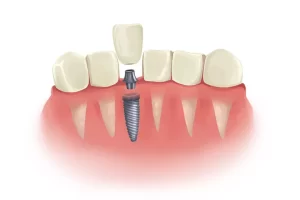Menopause is the natural process when women stop going through their natural monthly cycles. Usually, it occurs in the late 40s or early 50s.
Menopause is characterised by reduced oestrogen and progesterone production. While this is a normal part of growth, it sometimes comes with symptoms that can be frustrating to bear with.
Depending on the severity of your symptoms, menopause can significantly impact your physical and emotional well-being. That explains why many people consider menopause treatment. To learn more about personalised menopause treatment in Singapore, please follow this link: https://drngkailyn.com/conditions/menopause-care/.
What is the best Treatment for Menopause Naturally?
Menopause diagnosis is done by checking the symptoms and menstrual patterns. Your women’s health specialist may also perform physical exams to diagnose menopause.
If the diagnosis is positive, your gynaecologist may recommend specific treatments to help manage the symptoms that come with menopause. The specific treatments recommended for you will depend on the severity of your symptoms.
They may also recommend natural remedies. So if you’re wondering whether there are natural menopause treatments that work, the answer is yes. Here are the seven best treatments for menopause naturally.
- Stay Hydrated: Staying hydrated is an effective menopause treatment. During this phase, reduced oestrogen levels can lead to dryness. Consuming 8 to 12 glasses of water daily can alleviate dryness symptoms. Water intake can also alleviate bloating associated with hormonal changes. Also, drinking water aids weight management by promoting satiety and a slightly increased metabolism.
- Maintain Regular Meal Patterns: Maintaining regular meal patterns is crucial during menopause. This is because skipping meals can exacerbate symptoms and hinder weight management. Irregular eating may worsen certain menopausal symptoms and impede weight loss efforts. Therefore, prioritise consistent and balanced meals.
- Consume Foods Rich in Calcium and Vitamin D: Consuming foods rich in calcium and vitamin D is crucial during menopause to support bone health and reduce the risk of osteoporosis and fractures. For calcium consider incorporating in your diet dairy products like milk, cheese, and yoghurt. You can also add green leafy vegetables, tofu, beans, and sardines. You can get Vitamin D can from sunlight exposure. The problem is that as we age, the skin tends to be less efficient in producing vitamin D. So you may want to add supplements or vitamin D-rich foods like oily fish, eggs, and fortified products are important for optimal levels.
- Incorporate a Generous Amount of Fruits and Vegetables into your Diet: Fruits and veggies are not only low in calories. They also aid in weight loss and maintenance. Fruits and vegetables can help prevent diseases like heart disease, which becomes a concern during menopause. Diets rich in fruits and vegetables may also contribute to less bone breakdown. This can be really beneficial for maintaining bone health during menopause.
- Regular Exercises: Although its effectiveness in treating hot flashes and night sweats is not yet fully established, regular exercise offers several benefits for menopausal women. Exercises like Pilates-based programs, can enhance energy levels. They can also improve metabolism, joint and bone health, as well as reduce stress, and improve sleep quality. And what’s more, regular exercise is associated with better overall health, reducing the risk of conditions like heart disease, cancer, stroke, high blood pressure, type 2 diabetes, obesity, and osteoporosis. Notably, exercise can help mitigate the increased risk of heart disease during menopause, as evidenced by multiple studies.
- Maintaining a Moderate Weight: Weight gain, often influenced by hormonal changes, ageing, lifestyle, and genetics, can increase the risk of developing conditions like heart disease and diabetes during menopause. Besides, body weight can impact menopausal symptoms. To alleviate hot flashes and night sweats, you may need to lose just 10 pounds (4.5kg) or 10% of your body weight in a year.
- Keep off Trigger Foods: Some foods, especially when consumed at night, can trigger hot flashes, night sweats, and mood changes. Common triggers include caffeine, alcohol, and sugary or spicy foods. Keeping a symptom diary can help identify specific foods that worsen symptoms, allowing you to reduce consumption or avoid them entirely, leading to improved management of menopause symptoms.
- Bonus: Using Natural Supplements: Natural supplements are often considered by individuals seeking relief from menopause symptoms. The only major concern with natural supplements is limited evidence supporting their effectiveness. Although supplements like black cohosh, for example may help alleviate hot flashes, it has mixed evidence and lacks long-term safety data. Red clover isoflavone supplements have shown the potential to reduce hot flash frequency, but further research is needed. Additional supplements like probiotics, prebiotics, cranberry extract, kava, DHEA-S, dong quai, and evening primrose oil require further investigation for their effects on menopause symptoms.
What is the First Line Treatment for Menopause Symptoms?
There are so many natural treatments that are believed to cure menopause. However, your best bet if you do not want to undergo more frustrations is to consult with a specialist doctor like an obstetrician/gynaecologist.
To help you put your menopause symptoms particularly hot flashes under control, your OB/GYN will most likely prescribe antidepressant medications as the first-line treatment option. This will most likely be the case if you cannot take oestrogen or selective serotonin receptor inhibitors (SSRIs).
This is a class of antidepressants commonly prescribed to alleviate hot flashes during menopause. SSRIs modulate serotonin levels in the brain to regulate body temperature and may reduce the frequency and intensity of hot flashes.
These medications have shown promising results in clinical studies, effectively diminishing the severity and frequency of hot flashes experienced by menopausal individuals.
If your symptoms extend beyond hot flashes, your OB/GYN may recommend Hormone Therapy (HT). HT involves using oestrogen alone or oestrogen combined with progesterone (in women with a uterus) to replenish declining hormone levels during menopause.
Final Thoughts
Natural menopause treatments may seem promising. However, it is wise to consult with a specialist before trying any option.
This way, you can proceed with peace of mind knowing that you’re at least making the best decision not just for your health but also overall well-being. If you’re frustrated with menopausal symptoms and considering menopause treatment in Singapore, contact DR. NG KAI LYN to schedule your consultation.
As a board-certified gynaecologist, DR. NG KAI LYN is knowledgeable in managing hot flashes, mood changes, vaginal dryness, and more. Schedule your consultation today and discover personalised solutions tailored to your unique needs. Contact:
Dr Ng Kai Lyn | Female Gynaecologist | Women’s Health Specialist | Fertility Specialist Singapore
38 Irrawaddy Rd,
#05-34/35 Mt Elizabeth Novena Specialist Centre,
Singapore 329563
https://drngkailyn.com/
+65 6011 1531





